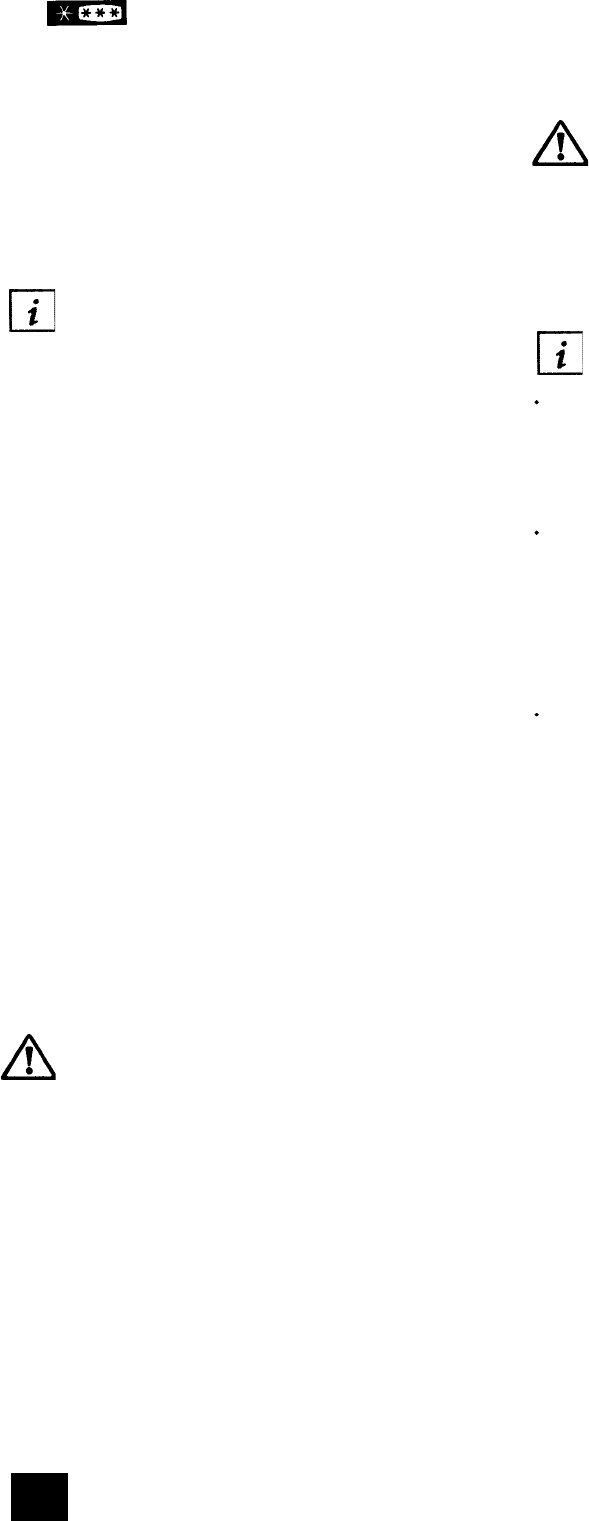
The Freezer Compartment
The symbol means that your freezer will
store frozen food at -18
°C (-0.4°F) or colder
allowing for long term frozen food storage and
freezing of fresh food. The freezer temperature is
controlled automatically by the thermostat
situated in the control panel.
Due to the different installations, methods of
usage and weather conditions, adjustments to the
temperature settings may be required.
These are best assessed against a
temperature reading on a thermometer
buried in the frozen food. The reading
must be taken quickly as the thermometer
temperature will rise rapidly after removal.
Frozen Food Storage
The appliance has the following net storage
volume:
129 litres (4.6 cuft)
41.7 kg (92 lb)
†
† This is a standard measurement and the
actual capacity depends upon the density
and sizes of the food. The above figures are
based on an average density of 0.32kg per
litre (20 lb per cuft).
Pre packed commercially frozen food should be
stored in accordance with the manufacturer's
instructions for a 4 star frozen food compartment
and should be put in the freezer as soon as
possible after purchase. Your freezer provides for
long term storage which generally means up to 3
months but the length of the time can vary and it
is important to follow the recommended times
shown on packets of commercially frozen food.
Do not place sealed containers or
carbonated liquids such as fizzy drinks
into the freezer as it creates pressure
on the container which may cause it to
explode resulting to damage to the
freezer.
Ice cubes and ice lollies should not be
consumed immediately after removal
from the freezer as it may result in low
temperature skin abrasions.
Manufacturers storage times should be
adhered to.
Freezing Fresh Foods
The maximum quantity of food you can freeze in
24 hours is 9kg. Place the fresh food on the top
freezer shelf. Food may need rearranging to
achieve this.
Frozen food should not be refrozen
once it has thawed out.
Do not remove items from the freezer if
your hands are damp/wet, as this could
cause skin abrasions or 'frost/freezer
burns'.
Hints and Tips
Any opened packets of frozen food,
should be rewrapped in airtight materials
to prevent surface evaporation which
cause s drying or 'freezer burn'.
Frozen food which is allowed to thaw
accidentally should either be used
immediately or thrown away. Alternatively
if the food is uncooked and has not been
completely defrosted it can be cooked and
then refrozen.
Aim to check dates on packets and rotate
food regularly. Although storage longer
than recommended is not harmful, flavours
and textures begin to change.
8


















